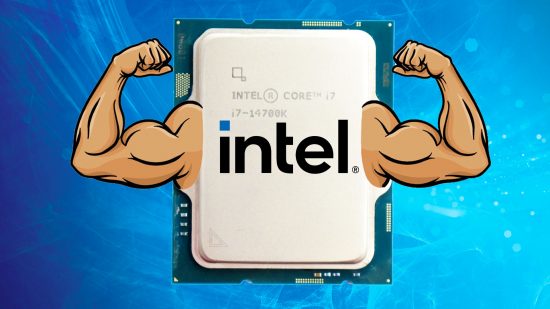AMD should be worried about what Intel is cooking up for its Raptor Lake refresh lineup later this year, as the latest Core i7-14700K benchmark leak shows a substantial jump in multi-threaded performance over the Core i7-13700K, leaving AMD’s 12-core Ryzen 9 7900X looking increasingly lost.
In an (apparently failed) attempt to avoid any threats from Intel, the data was posted by a lucky Chinese PC user in a video that detailed a ‘Core i7-13700KS’ CPU, but the video has already been deleted from BiliBili, where it was posted. However, this ‘Core i7-13700KS’ very clearly ticked all the boxes we’ve seen about the rumored Core i7-14700K specs, and we’re confident that we can call this chip the Core i7-14700K.
This latest Intel 14th gen benchmark leak shows an Intel CPU with eight P-cores and 12 E-cores in CPU-Z, which is four more E-cores than the Core i7-13700K, giving it a solid boost in multi-threaded clout. Thankfully, a few folks managed to grab screenshots of the most pertinent data in the video too, with Twitter user @9550pro tweeting images of the purported performance data from Cinebench R23 and the internal CPU-Z benchmark.
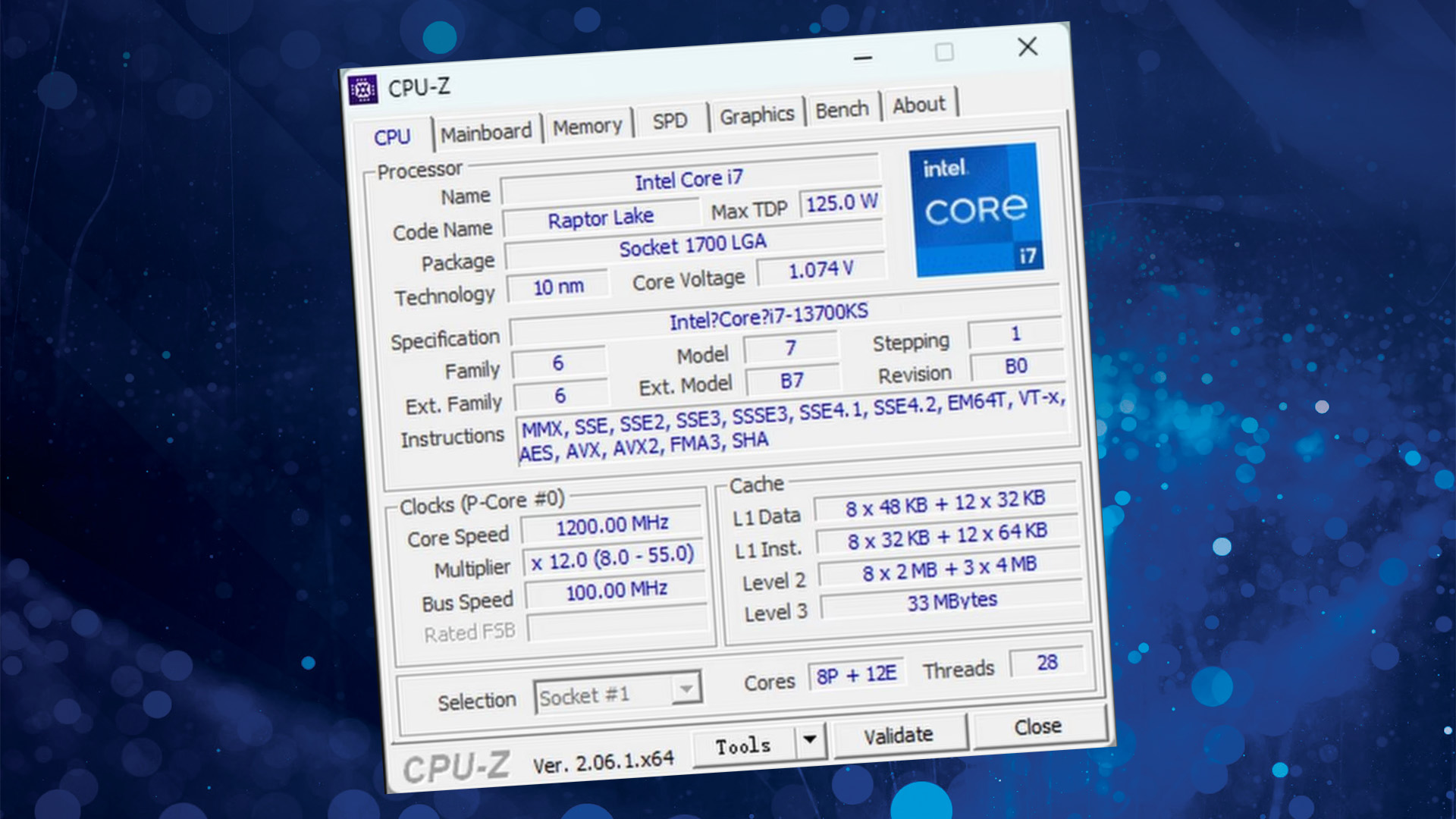
The most interesting data comes from the multi-threaded tests, where those four extra cores really come into play. The Core i7-14700K Cinebench R23 result of 35,214, compares with 30,811 for the Core i7-13700K. That latter figure corresponds with our own data, where we got a score of 30,137 from the same CPU.
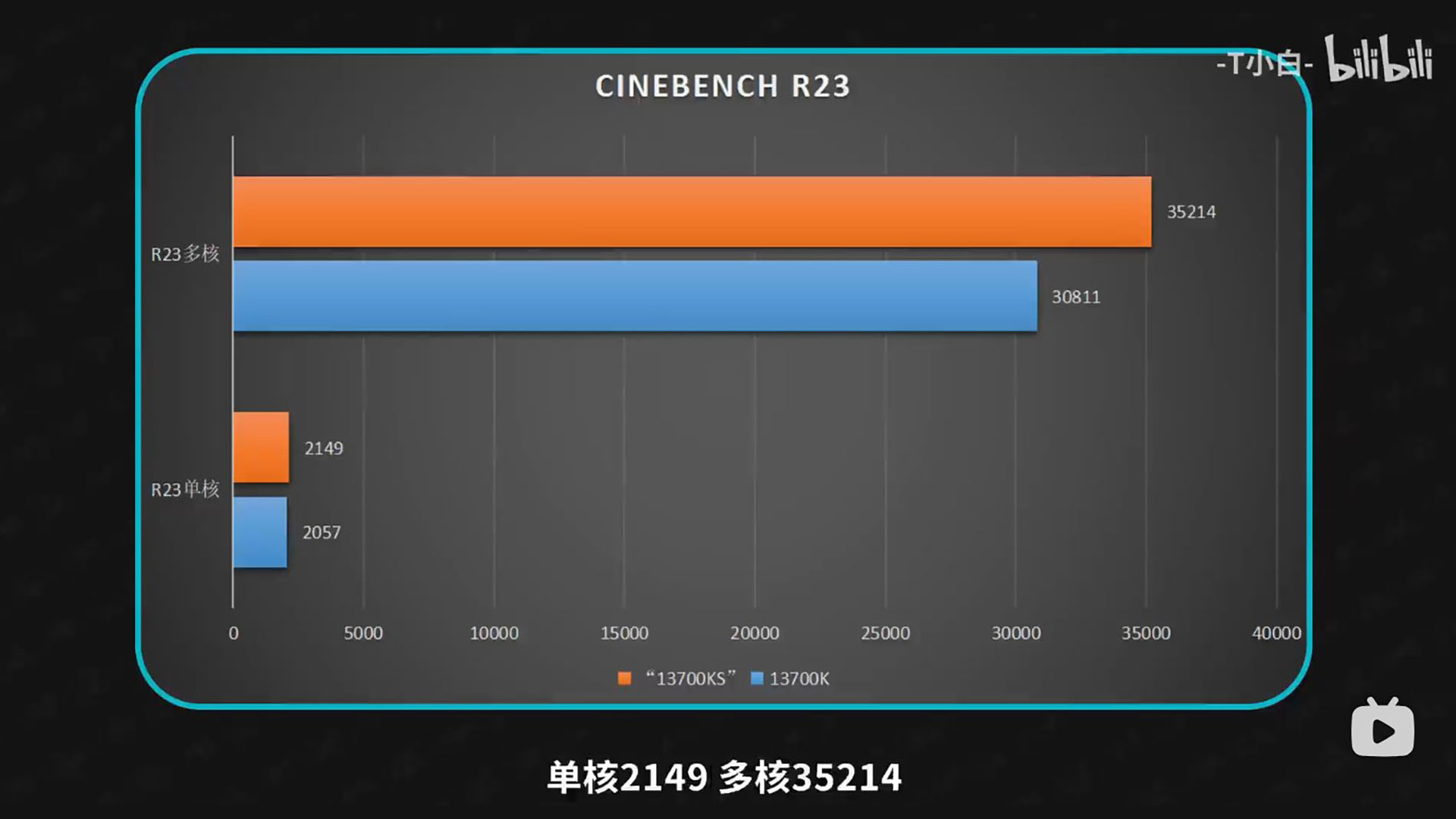
That potentially puts the Core i7-14700K a long way in front of the AMD Ryzen 9 7900X, which only scored 28,843 – you get a performance increase of 22 percent with the new Intel chip. It’s not even that far behind AMD’s mighty Ryzen 9 7950X, which has 16 full-fat AMD Zen 4 cores, and scored 38,422 in the same test. The Core i7-14700K CPU-Z benchmark data shows a similar story, with the multi-threaded score jumping from 12,422 to 14,992 between the Core i7-13700K and Core i7-14700K – a 20.7 percent performance boost.
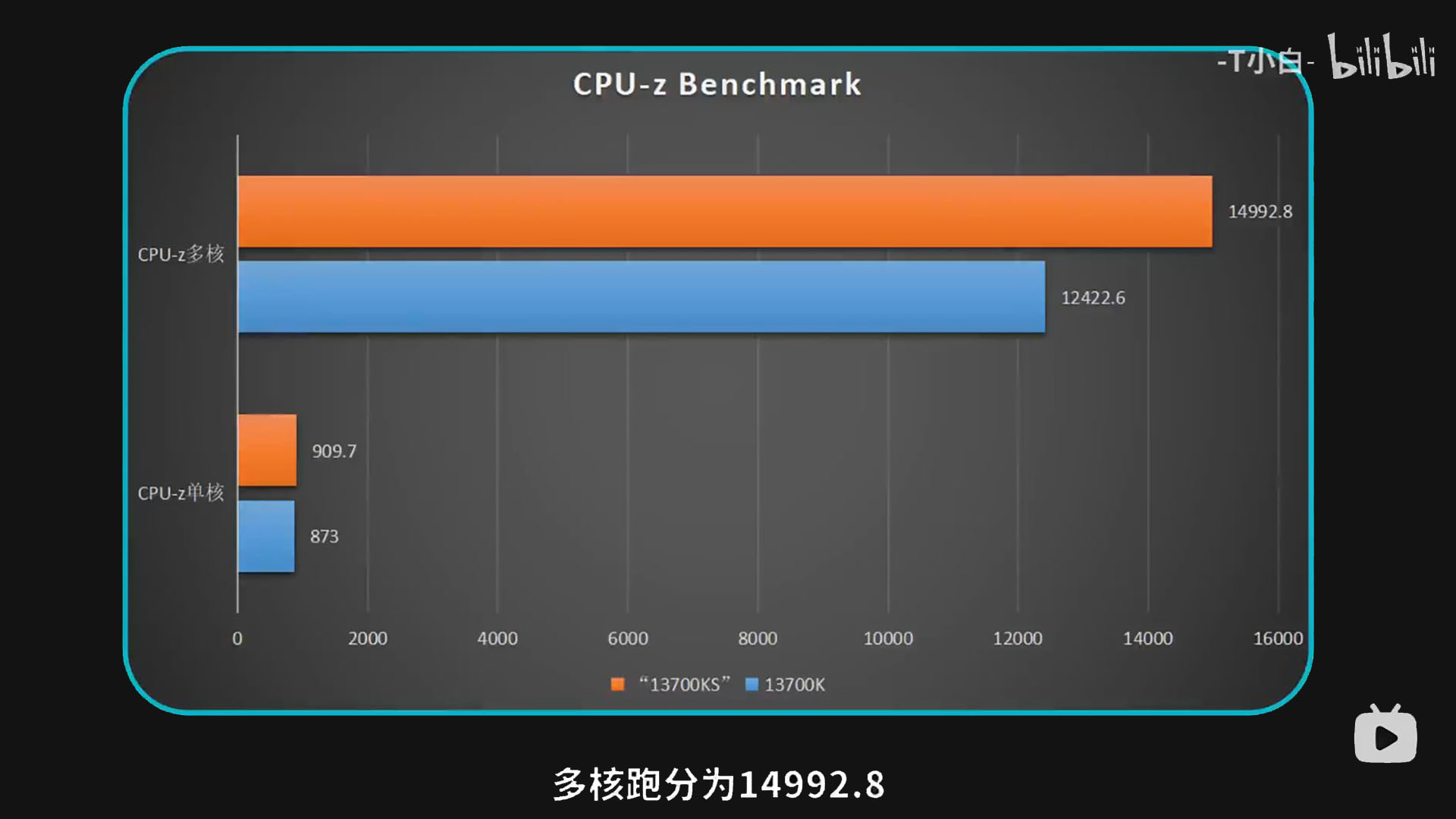
Both benchmarks showed only a small difference in single-threaded performance between the two CPUs, but this is unsurprising, as there’s only a 100MHz difference in boost clock speed between them. The Core i7-14700K is expected to boost to 5.5GHz, while the Core-i7-13700K already boosts to 5.4GHz.
These clock speeds were also verified by a further screenshot in the video, which showed the eight P-cores running at 5.5GHz, and the E-cores at 4.3GHz – both figures are 100MHz quicker than those of the Core i7-13700K.
Unsurprisingly, given that the Core i7-14700K uses the same manufacturing process and Raptor Lake architecture as the Core i7-13700K, these extra cores and clock speeds come at the price of power draw and temperature, with the Core i7-14700K power draw of 260.45W being nearly 30W higher than the 231.29W of the Core i7-13700K. The Core i7-14700K temperature of 78C is also two degrees higher than the 76C of the Core i7-13700K
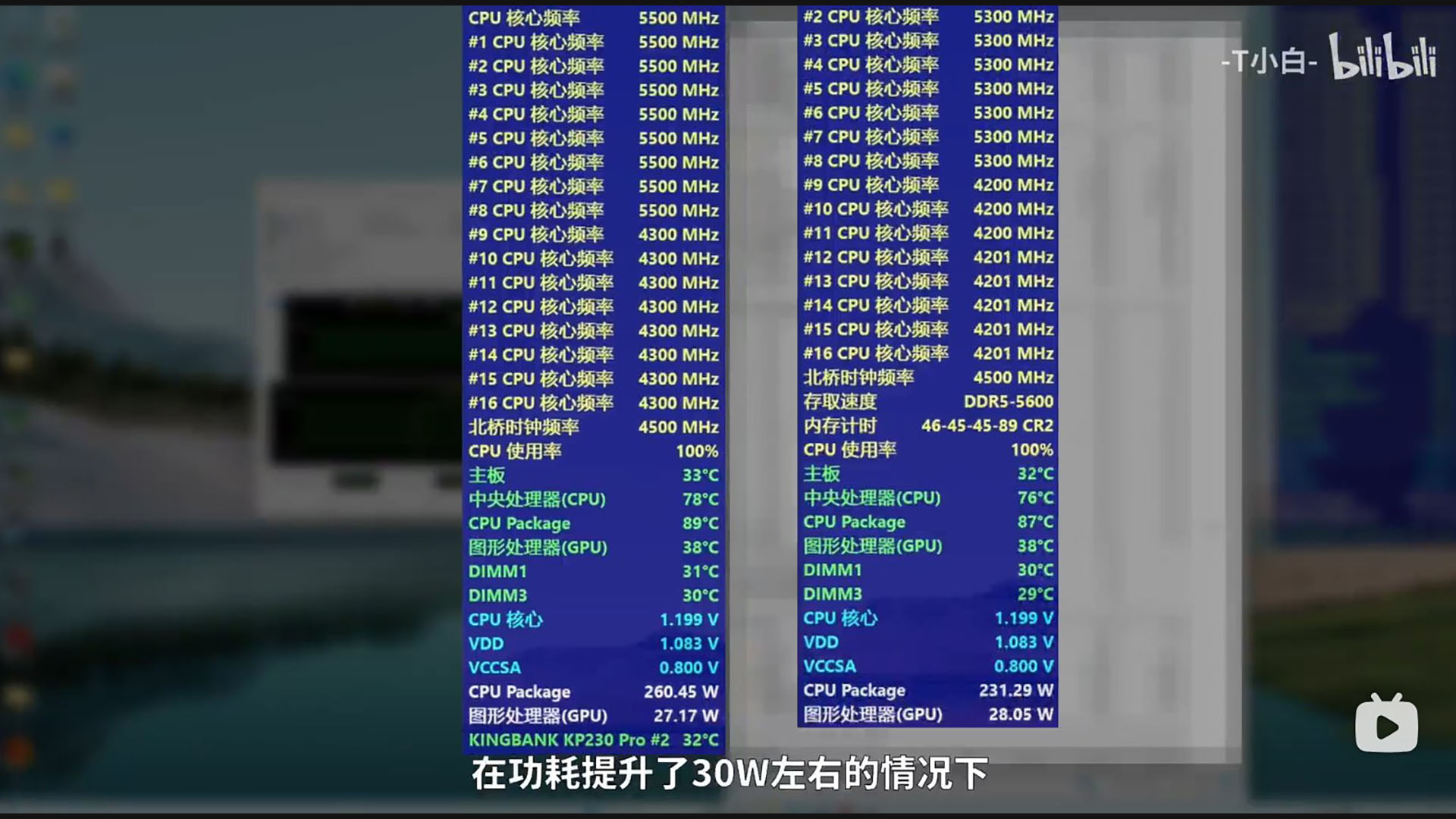
As with the single-threaded benchmarks, there’s not much difference between the Core i7-14700K game benchmark and that of the Core i7-13700K. The video showed frame rate results from CS:GO, with the Core i7-14700K averaging 880fps, compared with 862fps on the 13700K, a small difference that’s down to that little bump in clock speed.
Interestingly, however, the CS:GO screenshot also appears to show a Core i7-14700K overclock, with the chip running at 6GHz, while the Core i7-13700K is running at 5.8GHz, both with memory reportedly running at 8000MHz. In these configurations, there’s only a tiny difference of 1fps, which is within the margin of error, but it’s interesting to see that the Core i7-14700K can potentially hit 6GHz.
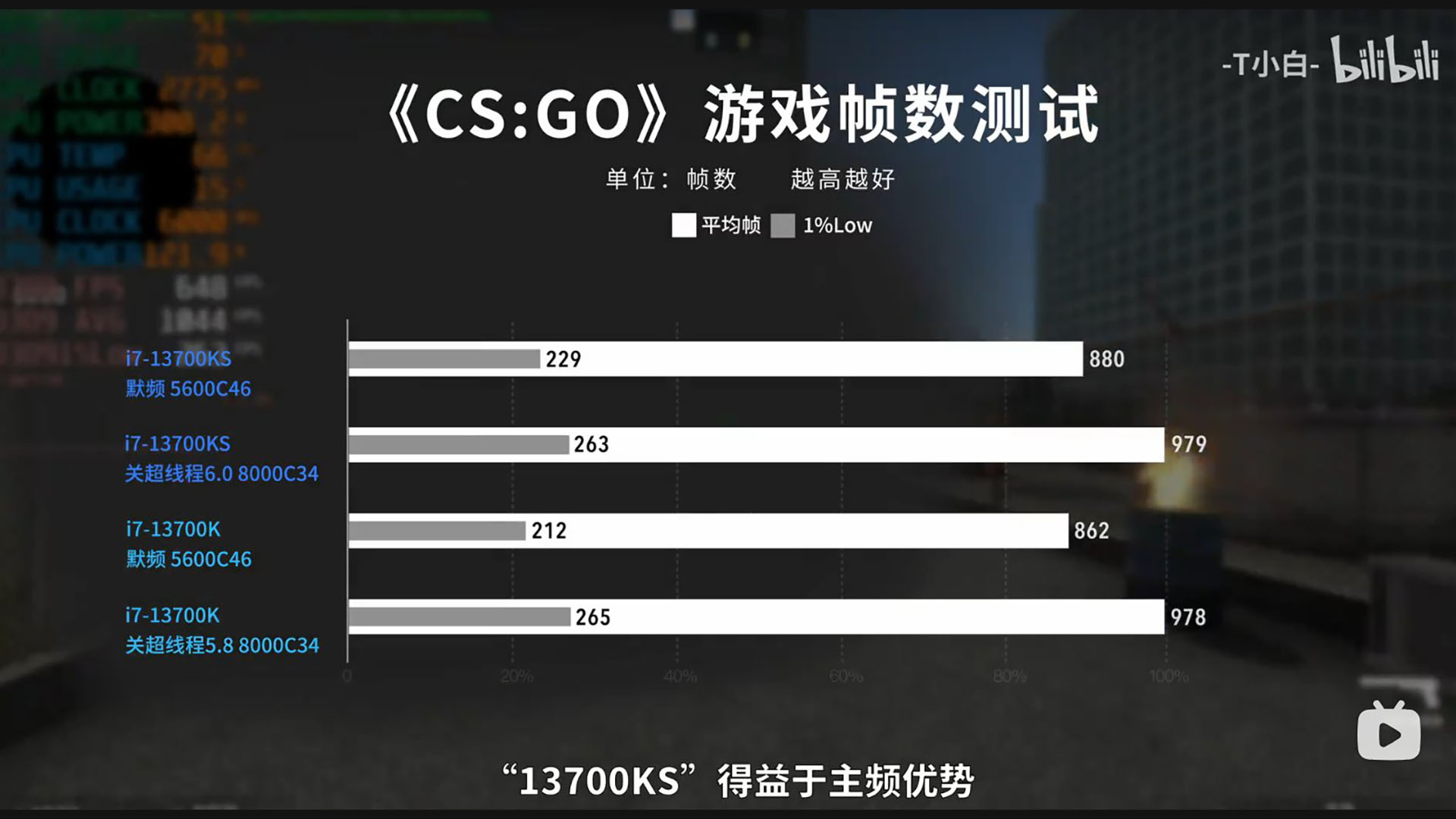
As always with leaked benchmark data, it’s always best to take these results with a pinch of salt, but these results do tie in with everything else we already know about the forthcoming Intel 14th gen CPU. While clock speed is apparently the only key difference between some of the chips in the new range compared with their 13th gen counterparts, it looks like the four extra E-cores could make the Core i7-14700K a killer chip that will seriously threaten AMD’s Ryzen 9 range.
If you’re looking to buy a new CPU in the meantime, make sure you read our guide to the best gaming CPU. Our top tip at the moment is the Core i5-13600K, which offers great all-round performance for a very reasonable price, and you can overclock the Core i5-13600K as well.
Would you be tempted to upgrade to a Core i7-14700K with 20 cores? Let us know your thoughts on the Custom PC Facebook page, via Twitter, or join our Custom PC and Gaming Setup Facebook group and tap into the knowledge of our 400,000+ members.
